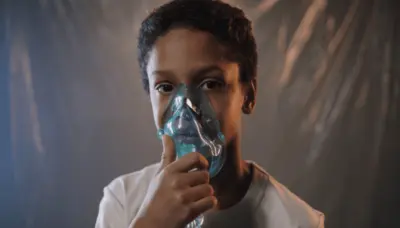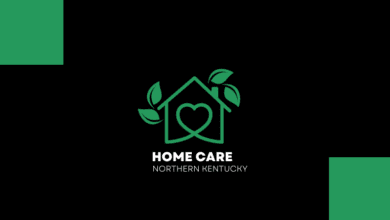What To Do If Your Young Child Has Asthma


If a kid under the age of 5 is wheezing or displaying other indications of respiratory distress, medical attention should be sought immediately. It’s possible that your symptoms are due to bronchial asthma, allergies, or something else. But your little one probably won’t.
Many pediatric illnesses manifest themselves in respiratory symptoms. Determining the root reason might be challenging at times. Here is how to identify a case of bronchial allergy in a child less than five years of age.
Young Children’s Asthma Diagnosis
Curiously, an asthma diagnosis cannot be made for a youngster under the age of five. Despite efforts by medical researchers, a clear method for diagnosing bronchial asthma in children as young as three years old has yet to be established. Online Medicationplace Store has information on Asthalin Inhaler.
Signs and symptoms of bronchial or lung disorders include wheezing, wheezing, and trouble breathing. According to studies, 33% of kids have wheezing problems before they start to flop. It can be challenging to detect an allergy in a child since they often exhibit more symptoms and indications when they are ill.
The symptoms of asthma are quite similar to those of other illnesses often experienced by adolescents. Sometimes telling one from the other is next to impossible. A doctor or nurse can help you assess your child’s condition and make the best decision for him or her. In certain cases, like with your kid, allergies might present with symptoms.
Do infants and young children ever have asthma?
Even though it is challenging to identify bronchial asthma in children younger than five, the condition’s early warning signals can be detected. Be mindful of these factors when you make comparisons between your toddler’s symptoms and your own.
A Look Back at the Past
A person’s genes could be the catalyst for developing asthma. Your infant may be affected by bronchial asthma if you or a close relative suffers from this condition. These numbers, together with your baby’s poor lung function, may signal that your child has ongoing health issues. Doctors can learn important information about your baby’s health from your family history.
Amplification of existing symptoms
Little ones need an adult who can interpret their feelings and guide them in the right direction. Warning indicators for your toddler’s death include those that linger for an extended period of time and do not appear to “permit” his or her going. If your child experiences allergy symptoms, these are the questions you should ask.
- Is your young child a chronic complainer? Noise from wheezing can be heightened by new flight restrictions.
- Does your baby have a persistent cough? An infant with bronchial asthma may have a persistent cough.
- Do loud sounds, like your toddler’s screaming or laughing, encourage him or her to take a breath? This indicates that the bronchial tubes are constricting. In other words, this is a highly effective hypersensitive reactive attack.
- Does your young child frequently become overheated when doing active sports? You should check your newborn for panting if they are experiencing problems breathing.
- How often do you have to tend to your baby’s breathing issues? These episodes, which can happen at any time of day, might trigger an allergic reaction.
If the symptoms persist or worsen, it may be a sign of something more serious than a common childhood disease. Babies who suffer episodes of wheezing or difficulty breathing three times or more may be hypersensitive, according to researchers.
Allergy-Proof Evidence
The allergens in the air can have a wide range of effects on various persons. Some kids might not feel anything, while others can have breathing issues or reduced lung function. If your newborn is displaying allergy symptoms, your doctor may order blood or skin testing. If your kid has allergies, these exams will reveal it. Allergies are more common in children of parents who themselves suffer from allergies. Asthma can be treated with Asthalin Inhaler USA.
Preschoolers with asthma symptoms
Your child’s sensitivities will become clear as time goes on. In the meanwhile, there are things you can do to assist your child cope with his or her allergies.
Don’t Give In to Impulses
Certain stimuli can bring on an episode of bronchitis. Asthalin Tablets can be triggered by a variety of different things. For the sake of their children, parents should know what causes allergies and take precautions against them.
Some alterations to the home environment may be necessary if you suffer from asthma. A house that is secure for infants with asthma can be improved by eliminating dust mites and hazardous substances. You can take preventative measures against your ailment by using either an Asthalin Inhaler or a Duolin Inhaler.
The factors that set someone off might be unique to them. Understanding the root reasons for your infant’s bronchial allergy and the best course of action to take is crucial.
Keep in mind that triggers may and do shift over time. If your baby’s triggers seem to have changed, it’s important to talk to their doctor.
Look for repetitions
There is a wide variety of triggers. Your child’s allergic responses are most likely to occur at this time of day when the triggers are most likely to be present. We can pinpoint the causes if we try. Asthalin Inhaler is complex, therefore many things must be considered.
Asthma Action Plans: Prepare in Advance
The Mayo Clinic recommends making a strategy on how to respond in the event of an allergic reaction. In the event of an allergic response, you will be better prepared thanks to this strategy. Use this strategy to assist your kid to express any worries they may have about Asthalin Tablets. You might inquire as to where their possessions are.




